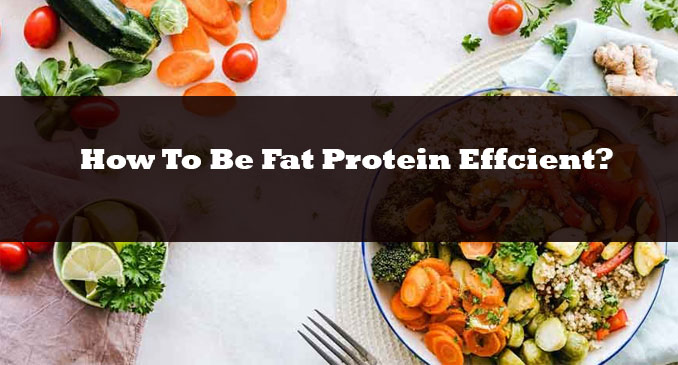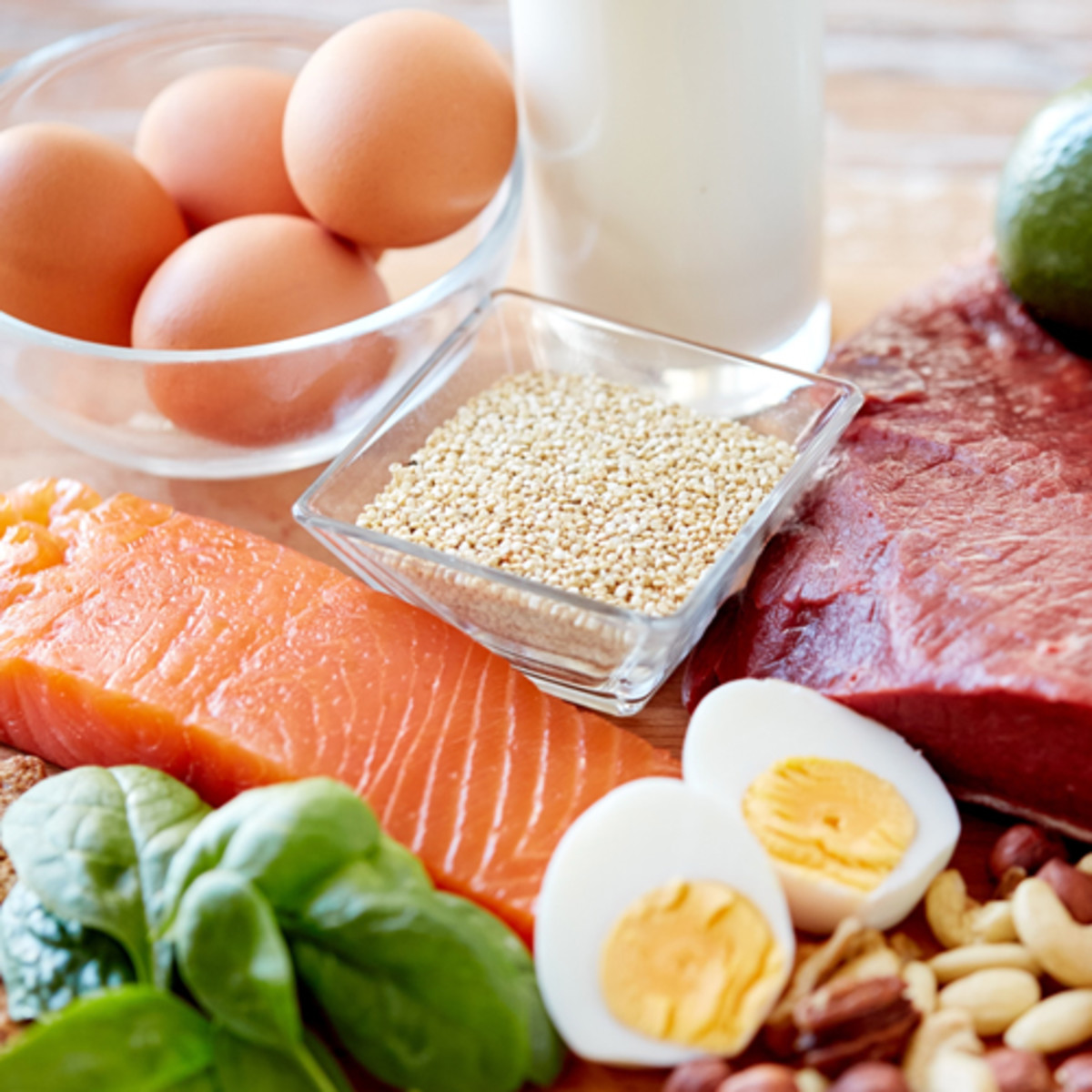What is a Protein-Fat Efficient Diet?
A protein-fat efficient diet, often abbreviated as a PFE diet, is a meal plan that focuses on balancing protein and fat intake while minimizing carbohydrate consumption. The primary goal of this diet is to optimize energy metabolism, insulin regulation, and overall health by emphasizing nutrient-dense, whole foods. By prioritizing protein and fat, the PFE diet aims to promote satiety, support muscle growth and repair, and enhance cognitive function.
The Science Behind Protein-Fat Efficient Diets
The scientific rationale for a protein-fat efficient diet is rooted in the understanding of macronutrient metabolism and their effects on insulin regulation, body composition, and overall health. Protein and fat have distinct roles in the body, and their balanced intake can contribute to optimal health outcomes.
Protein is essential for growth, repair, and maintenance of body tissues, including muscles. It also plays a crucial role in producing hormones, enzymes, and neurotransmitters. When consumed, protein triggers the release of satiety hormones, which can help control hunger and promote weight management. Furthermore, protein has a higher thermic effect of food (TEF) compared to carbohydrates and fat, meaning that the body burns more calories to digest and absorb protein.
Dietary fat is a concentrated source of energy and is vital for the absorption of fat-soluble vitamins (A, D, E, and K) and the production of hormones. Consuming healthy fats, such as monounsaturated and polyunsaturated fats, can support heart health, brain function, and inflammation reduction. Additionally, fat can contribute to satiety and help balance blood sugar levels when consumed alongside protein.
By minimizing carbohydrate intake, a protein-fat efficient diet aims to reduce the body’s reliance on glucose as a primary energy source. This approach can lead to improved insulin sensitivity, reduced inflammation, and enhanced fat burning. However, it is essential to ensure adequate fiber intake from low-carbohydrate plant-based foods to support gut health and regularity.
How to Implement a Protein-Fat Efficient Diet
Implementing a protein-fat efficient diet requires careful planning and consideration of food choices, meal planning, and portion control. Here are some practical tips and guidelines to help you get started:
1. Choose nutrient-dense, whole foods:
Focus on whole, minimally processed foods rich in protein and healthy fats, such as grass-fed beef, free-range poultry, wild-caught fish, eggs, nuts, seeds, avocados, and olive oil. Incorporate low-carbohydrate vegetables like leafy greens, broccoli, and bell peppers for fiber and essential nutrients.
2. Plan meals in advance:
Meal planning can help ensure you have a variety of protein-fat efficient meals throughout the week. Consider batch cooking and preparing meals in advance to save time and reduce the temptation to consume high-carbohydrate convenience foods.
3. Monitor portion sizes:
Pay attention to portion sizes, especially for protein-rich foods, to avoid overconsumption. Aim for a palm-sized portion of protein-dense foods per meal and fill the rest of your plate with low-carbohydrate vegetables and healthy fats.
4. Stay hydrated:
Drinking plenty of water is essential for overall health and can help control hunger. Aim for at least eight 8-ounce glasses of water per day, and consider incorporating herbal tea or infused water for variety.
5. Adjust as needed:
Every individual is unique, and it may take some time to find the right balance of protein, fat, and carbohydrates for your body. Pay attention to how you feel after meals and adjust your diet accordingly. Consider tracking your food intake using a mobile app or a food diary to help identify patterns and optimize your diet.
Potential Benefits of a Protein-Fat Efficient Diet
A protein-fat efficient diet can offer several potential benefits, including weight loss, improved blood sugar control, and enhanced athletic performance. By focusing on protein and fat as primary energy sources and minimizing carbohydrate intake, this dietary approach can contribute to overall health and well-being.
1. Weight Loss:
A protein-fat efficient diet can promote weight loss by increasing satiety, reducing overall calorie intake, and enhancing fat burning. Protein has a higher thermic effect of food (TEF) compared to carbohydrates and fat, meaning that the body burns more calories to digest and absorb protein. Additionally, consuming adequate protein can help preserve lean muscle mass during weight loss, ensuring that the weight lost comes primarily from body fat.
2. Improved Blood Sugar Control:
Minimizing carbohydrate intake can lead to improved insulin sensitivity and better blood sugar control. By reducing the body’s reliance on glucose as a primary energy source, a protein-fat efficient diet can help regulate blood sugar levels and reduce the risk of developing insulin resistance and type 2 diabetes.
3. Enhanced Athletic Performance:
For athletes or those engaged in regular physical activity, a protein-fat efficient diet can support performance by providing a consistent energy source and aiding in muscle recovery. Protein is essential for muscle growth, repair, and maintenance, while healthy fats can contribute to satiety and help balance blood sugar levels when consumed alongside protein.
4. Other Potential Benefits:
Additional potential benefits of a protein-fat efficient diet may include reduced inflammation, improved heart health, and enhanced cognitive function. By focusing on whole, nutrient-dense foods and minimizing processed, high-carbohydrate options, this dietary approach can contribute to overall health and well-being.
Potential Drawbacks and Considerations
While a protein-fat efficient diet can offer several potential benefits, it is essential to be aware of potential drawbacks and considerations. These may include nutrient deficiencies, social challenges, and long-term sustainability. By understanding these potential issues, you can make informed decisions about whether a protein-fat efficient diet is suitable for your individual needs and lifestyle.
1. Nutrient Deficiencies:
Minimizing carbohydrate intake can lead to reduced consumption of essential vitamins and minerals, such as vitamin C, folate, and certain B vitamins. To prevent nutrient deficiencies, ensure that you consume a variety of nutrient-dense, whole foods, including low-carbohydrate fruits and vegetables, nuts, and seeds. Additionally, consider supplementing with a high-quality multivitamin to help fill any nutritional gaps.
2. Social Challenges:
Adhering to a protein-fat efficient diet may present social challenges, particularly when dining out or attending social events where high-carbohydrate foods are prevalent. To navigate these situations, plan ahead by researching restaurants and discussing your dietary needs with hosts. Additionally, consider bringing a dish to share that aligns with your dietary preferences, ensuring that you have a protein-fat efficient option available.
3. Long-Term Sustainability:
A protein-fat efficient diet may be challenging to maintain long-term due to its restrictive nature. To ensure long-term sustainability, consider incorporating occasional higher-carbohydrate meals or days to provide variety and flexibility. This approach, often referred to as a cyclical or targeted ketogenic diet, can help maintain adherence and enjoyment while still achieving the desired health benefits.
4. Individual Variation:
Every individual is unique, and there is no one-size-fits-all approach to nutrition. Some people may thrive on a protein-fat efficient diet, while others may experience adverse effects. Pay attention to how your body responds to this dietary approach and consult with a healthcare professional before making significant dietary changes. A registered dietitian or nutritionist can provide personalized guidance and support to help you achieve your health and wellness goals.
Real-Life Examples of Protein-Fat Efficient Diets
A protein-fat efficient diet can take various forms, and there is no one-size-fits-all approach. By examining real-life examples of successful protein-fat efficient diets, you can gain inspiration and ideas for implementing this dietary strategy into your own lifestyle. Here are a few examples of protein-fat efficient diets and their specific meal plans:
1. The Standard Ketogenic Diet (SKD):
The SKD is a classic protein-fat efficient diet, characterized by a very low carbohydrate intake (typically less than 50 grams per day), moderate protein consumption, and high fat intake. A sample SKD meal plan might include:
- Breakfast: Scrambled eggs with spinach, avocado, and salsa
- Lunch: Grilled chicken salad with olive oil dressing and a handful of nuts
- Dinner: Baked salmon with a side of steamed broccoli and butter
- Snack: Celery sticks with almond butter
2. The Cyclical Ketogenic Diet (CKD):
The CKD incorporates higher-carbohydrate days or meals into an otherwise protein-fat efficient diet. This approach can provide variety and flexibility while still achieving the desired health benefits. A sample CKD meal plan might include:
- Day 1-3: Standard ketogenic diet meals (as described above)
- Day 4: Higher-carbohydrate refeed day, featuring sweet potatoes, quinoa, or other whole-food carbohydrate sources
- Day 5-6: Standard ketogenic diet meals (as described above)
- Day 7: Optional higher-carbohydrate refeed day, featuring whole-food carbohydrate sources
3. The Targeted Ketogenic Diet (TKD):
The TKD allows for increased carbohydrate intake around workouts, providing energy for exercise while maintaining a protein-fat efficient diet at other times. A sample TKD meal plan might include:
- Pre-workout: A small serving of whole-food carbohydrates, such as a banana or a serving of rice
- Post-workout: Protein-fat efficient meal, such as grilled chicken with steamed vegetables and olive oil dressing
- Other meals: Standard protein-fat efficient meals (as described above)
These are just a few examples of protein-fat efficient diets. By exploring various meal plans and success stories, you can find an approach that suits your individual preferences, goals, and lifestyle factors.
Customizing a Protein-Fat Efficient Diet for Your Lifestyle
A protein-fat efficient diet can be tailored to fit individual preferences, goals, and lifestyle factors. By making adjustments and customizations, you can create a dietary approach that supports your health and well-being while still aligning with the principles of balancing protein and fat intake and minimizing carbohydrate consumption.
1. Consider Your Activity Level:
Your activity level plays a significant role in determining your macronutrient needs. Individuals with higher activity levels may require more carbohydrates to support energy demands, particularly around workouts. Consider incorporating targeted or cyclical ketogenic approaches to accommodate increased carbohydrate intake while maintaining a protein-fat efficient diet.
2. Adjust Your Protein and Fat Intake:
The optimal balance of protein and fat in a protein-fat efficient diet can vary depending on individual factors such as body composition goals, activity level, and personal preference. Experiment with different ratios of protein and fat to find the right balance for your needs. For example, some individuals may thrive on a higher-protein, moderate-fat approach, while others may prefer a lower-protein, higher-fat approach.
3. Incorporate Nutrient-Dense Foods:
Ensure that your protein-fat efficient diet includes a variety of nutrient-dense foods to prevent nutrient deficiencies and support overall health. Focus on whole, minimally processed foods such as grass-fed meats, wild-caught fish, organic eggs, low-carbohydrate vegetables, nuts, and seeds. These foods provide essential vitamins, minerals, and antioxidants that support optimal health and well-being.
4. Monitor Your Progress:
Regularly assess your progress and make adjustments as needed. Pay attention to how your body responds to the protein-fat efficient diet and make modifications based on your individual needs and goals. Consider tracking your macronutrient intake, body measurements, and energy levels to help inform your decision-making process.
5. Consult with a Healthcare Professional:
Before making significant dietary changes, consult with a healthcare professional, such as a registered dietitian or nutritionist. A healthcare professional can provide personalized guidance and support, ensuring that your protein-fat efficient diet aligns with your individual needs and health goals.
By customizing a protein-fat efficient diet to fit your unique preferences, goals, and lifestyle factors, you can create a sustainable and enjoyable approach to nutrition that supports your health and well-being.
Maintaining a Balanced Approach to Nutrition
While a protein-fat efficient diet can offer numerous potential benefits, it is essential to maintain a balanced approach to nutrition, even within the context of this dietary strategy. By incorporating a variety of nutrient-dense foods and considering individual preferences, goals, and lifestyle factors, you can create a sustainable and enjoyable approach to nutrition that supports your health and well-being.
1. Focus on Whole, Minimally Processed Foods:
A protein-fat efficient diet should prioritize whole, minimally processed foods to ensure adequate intake of essential vitamins, minerals, and antioxidants. Focus on grass-fed meats, wild-caught fish, organic eggs, low-carbohydrate vegetables, nuts, and seeds to create a balanced and nutrient-dense dietary approach.
2. Monitor Your Macronutrient Intake:
Regularly track your macronutrient intake to ensure that you are maintaining the appropriate balance of protein, fat, and carbohydrates. This can help prevent nutrient deficiencies, support energy needs, and promote overall health and well-being.
3. Consult with a Healthcare Professional:
Before making significant dietary changes, consult with a healthcare professional, such as a registered dietitian or nutritionist. A healthcare professional can provide personalized guidance and support, ensuring that your protein-fat efficient diet aligns with your individual needs and health goals.
4. Stay Hydrated:
Proper hydration is essential for overall health and well-being, regardless of your dietary approach. Ensure that you are consuming adequate fluids, particularly water, throughout the day to support optimal health.
5. Listen to Your Body:
Pay attention to how your body responds to a protein-fat efficient diet. If you experience adverse effects, such as fatigue, nutrient deficiencies, or difficulty adhering to the diet, consider making adjustments or consulting with a healthcare professional for further guidance.
By maintaining a balanced approach to nutrition within the context of a protein-fat efficient diet, you can support your health and well-being while still enjoying the potential benefits of this dietary strategy.









